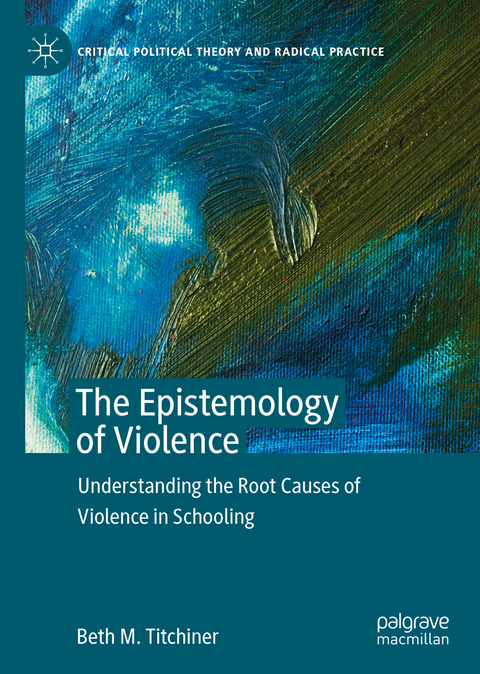
The Epistemology of Violence
Springer International Publishing (Verlag)
978-3-030-12910-1 (ISBN)
This book provides an in-depth, multidisciplinary framework and case-study analysis for understanding the root causes of violence in schooling. Drawing on critical theory, psychology, neuroscience and learning theory, the author provides a holistic analysis of how 'violent epistemology' and the 'non-conducive circumstances' that it produces can be seen to be at the roots of violence in societies and social institutions such as schools. Chapter 1 outlines how current and historical theories of violence, and interventions based on them, have failed due to their inability to properly conceptualise the root causes of violence. Chapters 2 addresses this by providing a new epistemic and methodological framework for studying violence. Chapters 3 and 4 then demonstrate how violence can be best conceptualised as a problem of specifically 'violent' epistemology and the 'non-conducive social circumstances' that it fosters. Chapters 5-7 demonstrate in practice how violent epistemology results in multiple manifestations of violence at the global, national, local, and ultimately classroom level. Chapter 8 concludes the book by presenting an early conceptualisation of 'non-violent' epistemology, and what fostering this might look like in practice.
Beth M. Titchiner has a PhD in Education from the University of East Anglia, UK, and has worked in a wide variety of third sector and educational settings. Her work and research has focused largely on social inequality, housing, welfare, disabilities, and pedagogy with particular emphasis on the relationships between epistemology, subject development, wellbeing, and social/institutional structures.
1. Introduction.- 2. A New Epistemic and Methodological Approach to the Study of Violence.- 3.Conceptualising Violence as a Problem of Epistemology.- 4.Conceptualising Violence in Relation to Social Circumstances and Subject Development.- 5. How Violent Epistemology Shapes the Contexts Surrounding Schools: Brazil, São Paulo and the Baixada.- 6. How Violent Epistemology Shapes Schooling Systems: The Development of Public Schooling in Brazil and São Paulo.- 7.How Violent Epistemology Manifests in Schools: The Case of DCX.- 8. Moving Forwards.
| Erscheinungsdatum | 26.03.2019 |
|---|---|
| Reihe/Serie | Critical Political Theory and Radical Practice |
| Zusatzinfo | XIII, 268 p. 4 illus. |
| Verlagsort | Cham |
| Sprache | englisch |
| Maße | 148 x 210 mm |
| Gewicht | 498 g |
| Themenwelt | Geisteswissenschaften ► Philosophie ► Geschichte der Philosophie |
| Geisteswissenschaften ► Philosophie ► Philosophie der Neuzeit | |
| Sozialwissenschaften ► Pädagogik | |
| Sozialwissenschaften ► Politik / Verwaltung ► Politische Theorie | |
| Schlagworte | alternative education • Brazil • Classroom • Critical social theory • Critical theory • Education • Educational Psychology • Epistemology • Freire • History • Learning theory • Neuroscience • Pedagogy • Philosophy • radical pedagogy • school • Schooling • Social Justice • Social Movement • Sociology • Violence |
| ISBN-10 | 3-030-12910-1 / 3030129101 |
| ISBN-13 | 978-3-030-12910-1 / 9783030129101 |
| Zustand | Neuware |
| Haben Sie eine Frage zum Produkt? |
aus dem Bereich


